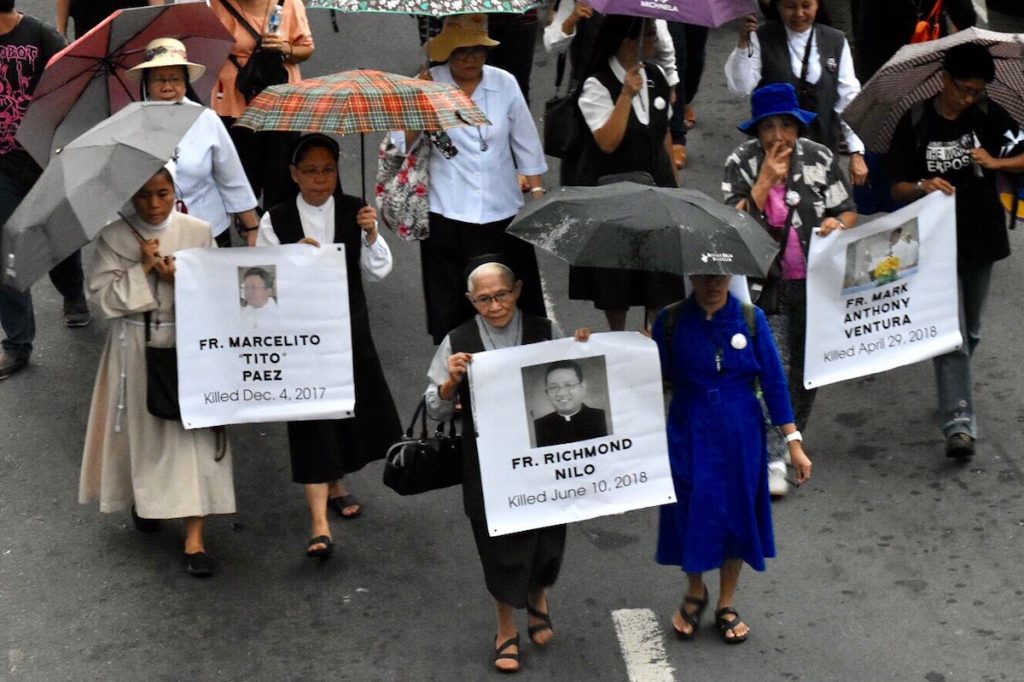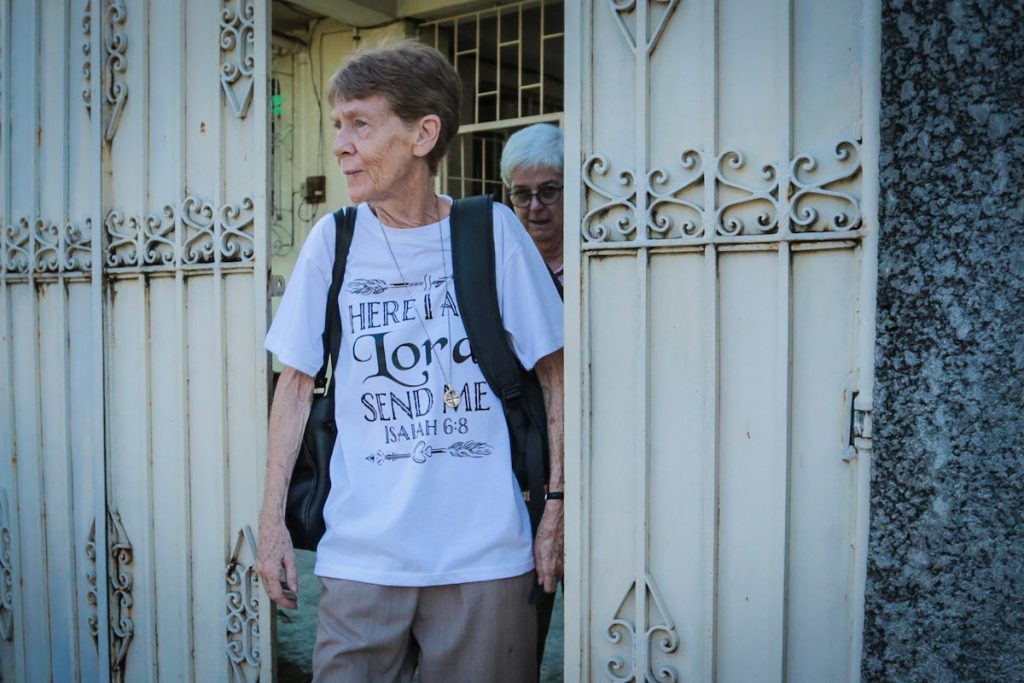We were still engaged in socio-development work in the early 1990s when we met representatives of the group known as Rural Missionaries of the Philippines (RMP).
The nuns we talked to struck us as soft-spoken, well-meaning and quite serious in helping the poor and the underprivileged in the countryside.
It comes as a shock, therefore, that they now find themselves in the crosshairs of the government for, of all things, alleged terrorism financing, with their bank accounts recently frozen by the Anti-Money Laundering Council (AMLC).
For the group, the government move “greatly encumbers our mission to collectively witness and act as Christ’s disciples with the rural poor, for them to enjoy the fruits of their labor, to live a life of justice and peace towards fullness of life promised to all God’s children.”
But the church group vows to continue its work: “Now more than ever, the RMP will live out its commitment to be servant-leaders with the poor farmers, fisherfolk, agricultural workers, and indigenous peoples so that all may truly experience God’s compassion and mercy in the here and now.”
I believe them.
RMP’s website describes itself as a national organization, inter-congregational and inter-diocesan in character, of religious women and men, priests and lay. Founded on Aug. 15, 1969, RMP is one of the Mission Partners (MPs) of the Association of Major Religious Superiors in the Philippines (AMRSP).
The group’s mission is to commit themselves to servant leadership with the rural poor through collective witnessing and prophetic action, and to “encourage and motivate the people of goodwill in support of the rural poor to enjoy the fruits of their labor and fullness of life and preserving the integrity of creation.”
RMP envisions “a community of Christ disciples living as credible witnesses of God’s mercy and compassion, living joyfully and authentically, enjoying the fruits of their labor, participating in decision making, owning the land they till and preserving the integrity of creation towards the attainment of life, justice and peace.”
The RMP actually implements several programs as part of its over-all mission. The Formation Support Program (FSP) facilitates rural integration of seminarians and religious people to commit themselves to support the rural poor, and initiates advocacy and campaigns on rural poor concerns, and organizes groups known as Friends of the Rural Poor (FORP).
The Organizational Capability Building Program seeks to strengthen organizational systems for efficient and effective missionary endeavors, generate and build resources for self-sustainability, and to document program implementation and best practices.

Meanwhile, the Ministries for Community Support (MCS) Program provides support services on disaster risk reduction, health services, human rights defense, sustainable agriculture and climate change mitigation, initiates community building, and establishes networks and linkages at the local level.
RMP’s membership consists of religious women and men, priests and lay who enter on a voluntary basis. Religious members remain members of their respective congregations, and priests of their dioceses.
Members must accept the RMP vision, mission and goals, and sign a renewable contract for a period of three years.
Amid what appears to be intensified moves by the Philippine government to portray it as part of a terrorist network, RMP has garnered support from the Congregation of Our Lady of Charity of the Good Shepherd, or Religious of the Good Shepherd.

In a statement by the congregation’s Philippines-Japan Province, they deplored “unprecedented attacks not only on those who speak on behalf of the poor but also on those who provide practical relief to their suffering…”
The congregation noted with dismay the “trend of a shrinking civil society space which is vital in any democratic society,” as “non-profit organizations and institutions that support civil society’s exercise of freedom to association and expression are being scrutinized and harassed in many forms.”
The group lamented that “bishops, priests, religious women and men, all who made their consecration a solemn offering to serve Him who is hungry and thirsty, stranger, naked, and imprisoned are maligned and treated as enemies of the state. We know full well even at the start of our religious formation that our consecrated life comes with the cross of persecution and our preferential option for the poor will confuse many but with clearest conscience we declare to be everything to everyone except in sharing the communist ideals.” (Underscoring ours.)
Further on, the statement makes it very clear: “While the prevailing culture we see today is that of impunity, of bending and interpreting the rules for the elite, and of making exceptions to benefit the few, we put our trust in the rule of law and in our courts to safeguard human rights, to respect due process, and to be truthful to its policies and procedures.”
Finally, the statement emphasized: “Dissent is not a crime but a necessary element in a democratic society …. As missionaries, we see our role in society as collaborators to realize a more just world where everyone enjoys their rights and exercise their duties. We are not enemies of the state and our contributions to nation building in the spirit of solidarity and subsidiarity are proof of deep love for our nation and fellow human beings.”
The passages we highlighted in the statement are significant as they serve to refute the government allegation that the RMP and like-minded faith groups helping the poor are anti-government and supporters of the rebel or terrorist underground.
We urge the Duterte administration to initiate open communication and dialogue with RMP and similar groups, possibly with the support of the Catholic Bishops Conference of the Philippines, to thresh out issues and concerns.
From my own experience in dealing with them years back, the nuns of RMP are really helping the poor. If the government is really serious in inclusive development, then it should even tap the RMP and similar groups as partners in peace and development efforts in the Philippine countryside.
Ernesto M. Hilario writes on political and social justice issues for various publications in the Philippines. The views and opinions expressed in this article are those of the author and do not necessarily reflect the official editorial position of LiCAS.news.








